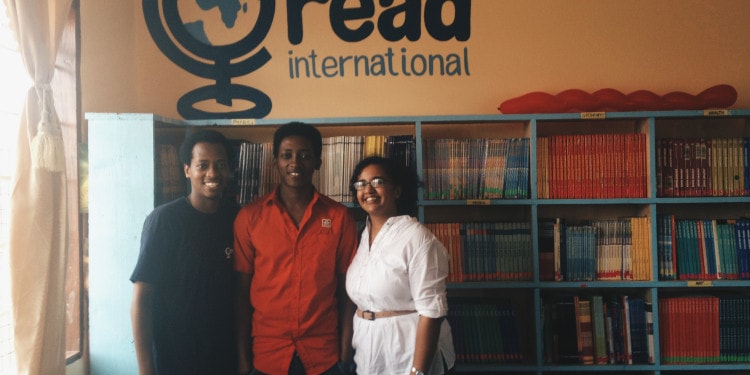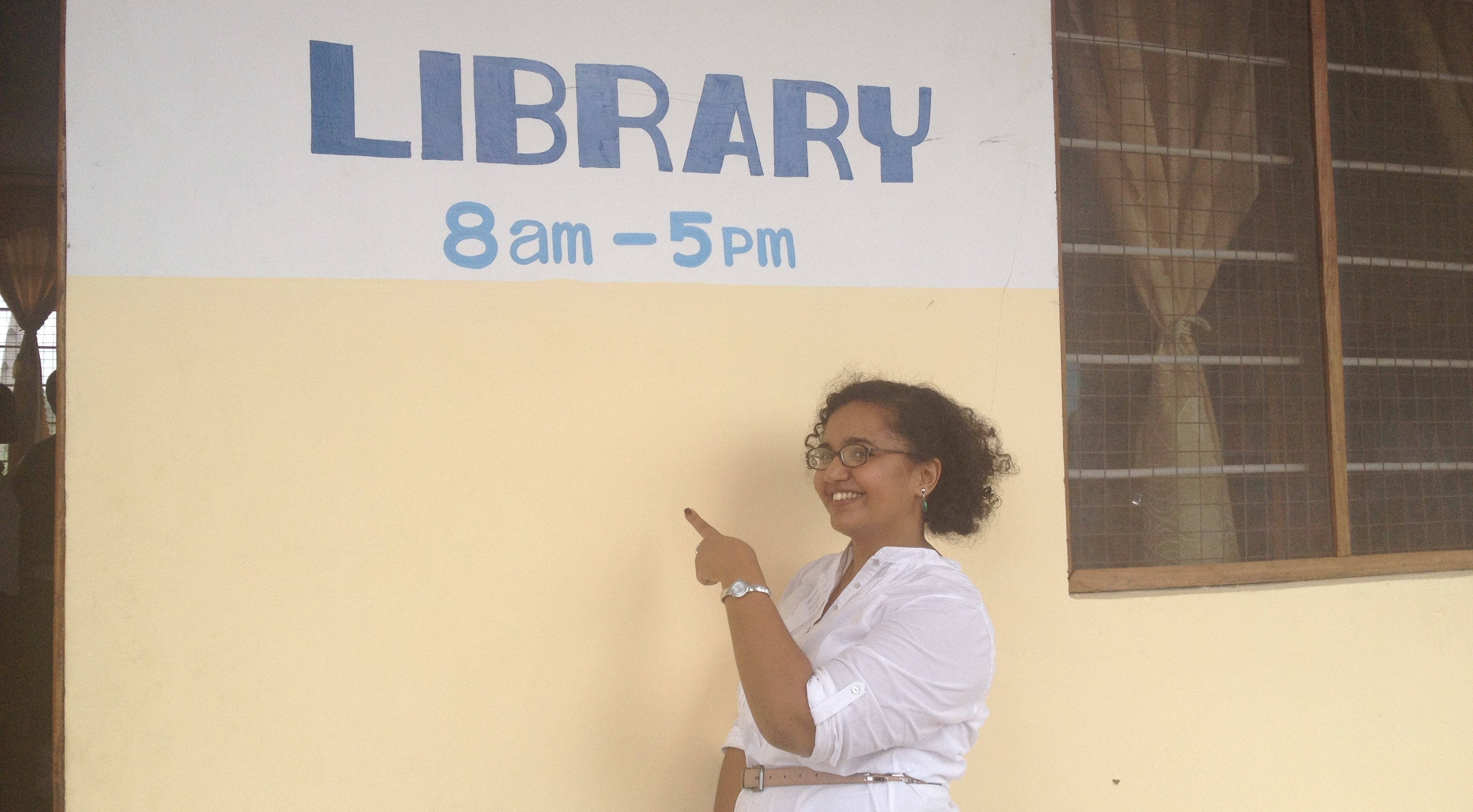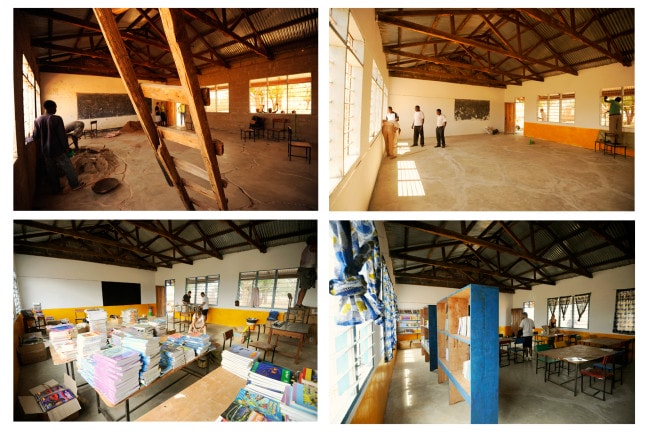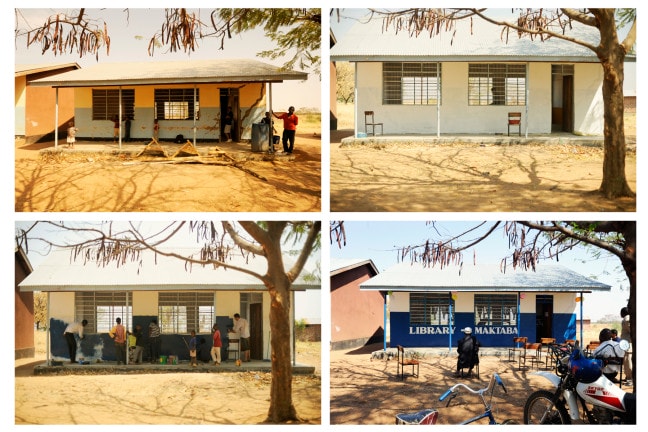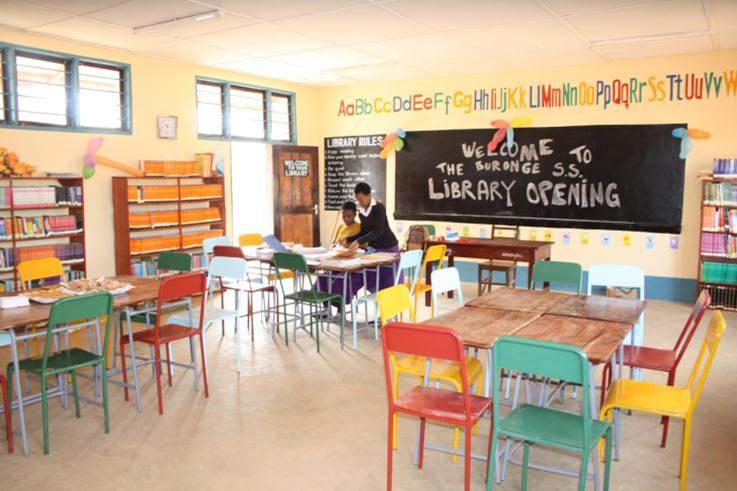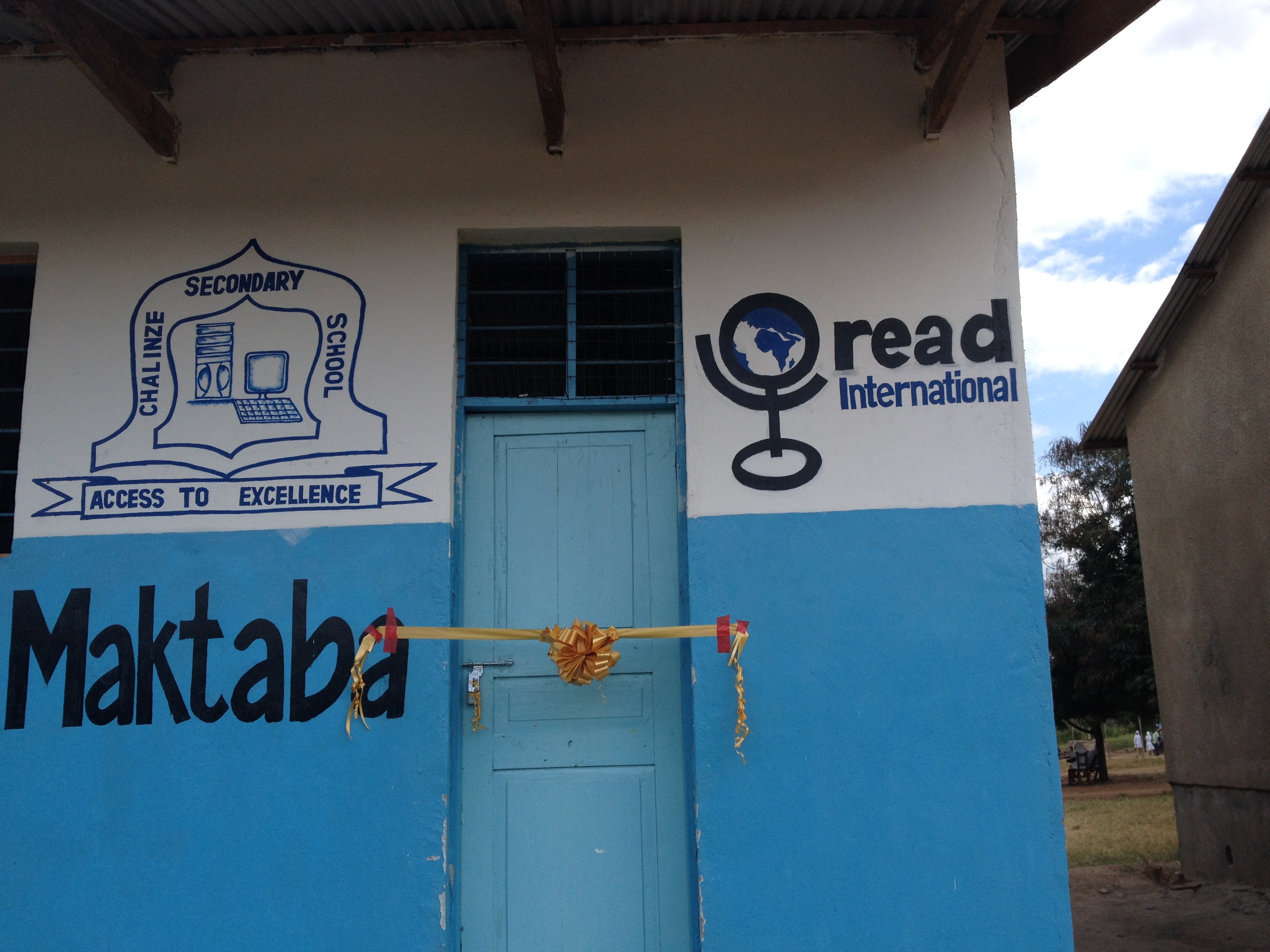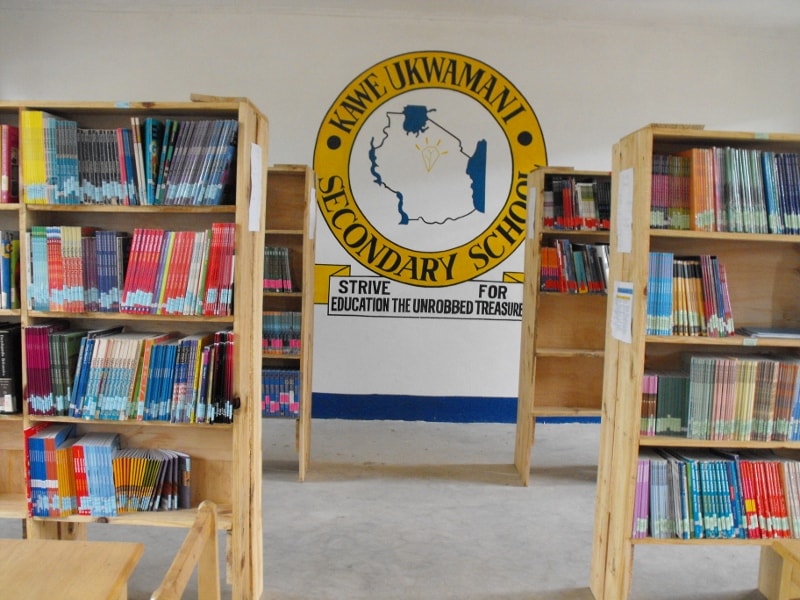READ International, is a multi-award winning charity. They run a very special educational program in Tanzania, aimed at children and adults as well. They provide them with textbooks, dictionaries, fiction books and many other important services. We got to speak with it Director Montse Pejuan.
Q. International Aid and Development Charity (Charity Awards 2010); Best Corporate Partnership (Institute of Fundraising Awards 2010) Finalist at National Recycling Awards 2010, Best New Charity (Charity Times Awards 2007). First of all, CONGRATULATIONS! How was the idea of this charity born?
Thank you so much! We’re very proud of what we’ve been able to accomplish! The organization began almost ten years ago when a student from the University of Nottingham spent the summer at a Tanzanian secondary school. He noticed that students did not have access to books to be able to study on their own, particularly when teachers were absent. When he returned to the UK, he joined forces with some friends to collect books that secondary and university students no longer needed. The first few years of READ’s life were more about book distribution. But as we continued to monitor our programmes, we realised that we needed to prepare a place to house the books and support schools to run a loaning system. That was the beginning of what we now call the Library Refurbishment Programme. We work with Tanzanian university student volunteers to transform a pre-existing library or an empty classroom into a bright, colourful space that allows students access to books and is conducive for independent reading and studying. We provide the schools with donated books from the UK and new locally published books from Tanzania.
Q. “READ International has collected and donated over 1.4 million books to Tanzania and created 63 libraries “…but especially to secondary Schools. Any particular reason why you do not focus on primary education?
READ didn’t set out to exclude primary schools. The Tanzanian education system is such that the medium of instruction in primary schools is Kiswahili, while the medium of instruction in secondary school is in English. The books collected in the UK were only suitable for secondary schools. Over the years, we have improved and developed our Library Refurbishment Programme to cater specifically to the needs of secondary schools.
Since 2014, we have shifted our focus to providing mainly locally published books and we now work primarily with Tanzanian volunteers. The two changes mean that we could work in primary schools. We look forward to adapting our Library Refurbishment model to be able to do so. We want to make sure, though, that we take care to research best practice in library programmes in primary schools and undertake a pilot project before we consider taking this on as one of our standard programmes.
Q. So lets focus on the secondary education issues. The Tanzanian government seems to suffer from the intense pressure to meeting the growing demand for secondary education. How do policymakers deal with the problem?
The Tanzanian government has facilitated the expansion of secondary education at a remarkable rate in the past 10 years, seeing a 143% increase in students between 2006 and 2010. A programme was announced where the government committed to take on and run schools if the communities built the infrastructure, popularly known as ‘community schools’. This was so popular that it led to an increase in the number of secondary schools that greatly exceeded even the government’s ‘high growth scenario’ predictions. As such, they were not fully prepared with the resources needed to ensure that schools could offer quality education from the outset. This is a challenge that many countries across the world are facing and discussions about the next stage of the Millennium Development Goals (MDGs) after 2015 suggest that the international focus will shift from just access to education to a focus on the quality of the experience provided.
Q. So schools were built but resources and basic essentials were not provided. Can you highlight the most common situation in the schools?
The situation in schools differs depending on how well established the school is and its location. Newer schools face particular shortages in terms of resources and teaching staff, particular for sciences and mathematics. READ has not got information on the situation in all Tanzanian schools, but we can talk about the schools we have worked in.
The typical profile of a school that we have worked with tends to have a reported 50:50 gender balance, although sometimes the number of boys is often higher, particularly in the later years; 78% do not have any computers; 60% have electricity; 68% do not have a science lab,54% do not have running water and a 42% pass rate to further studies.
Q. Where does READ International come in?
When a school is built from scratch the focus is initially on building classrooms. This is followed by toilets, teachers housing, dormitories, and a bit later laboratories and libraries. All this construction is expensive. While the government does acknowledge that all schools should have a library, it comes quite low on the priority list. Where READ comes in is that we have model that works with existing infrastructure. We only work with schools that either already have a library which is not in good shape or have a spare classroom that can be converted into the library, a teacher who is prepared to be responsible for the library, and be committed to keeping the library open and lending books to students to take home. We donate new and used books to each school. We prepare a bespoke order for each school to ensure that we complement what is already available at the school and provide a good cross-section of Kiswahili and English books for leisure reading. We hope to bring an energy and enthusiasm for books and encourage a culture of reading at the schools we work in. In 2015, we will be piloting a new after-school Reading Programme in a Dar-es-Salaam. We not only want to provide the libraries, we want to work with students to support them to develop an appreciation of and confidence in reading.
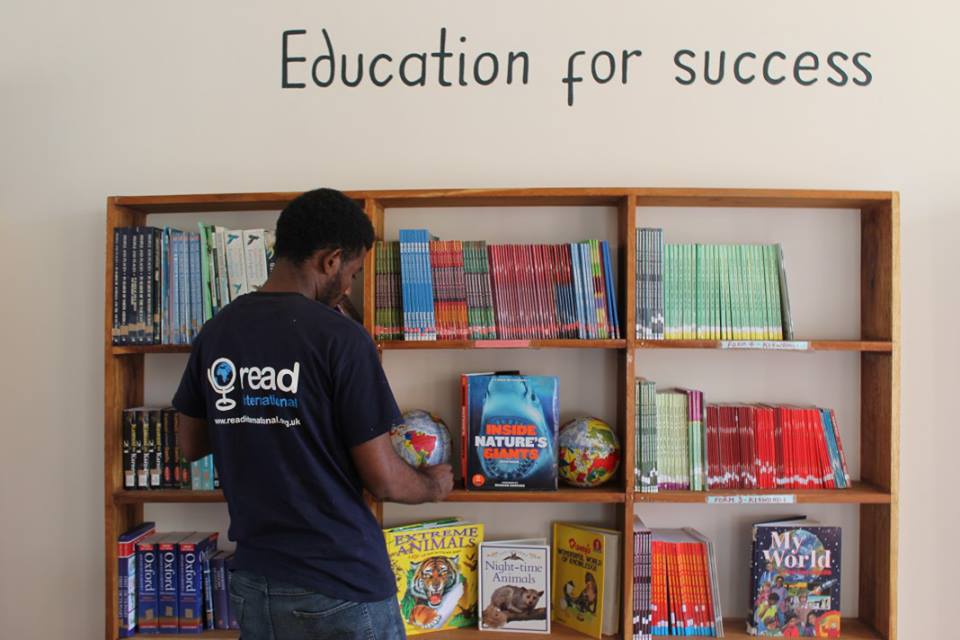
Q. What the big focus and results of your project?
The output of our project is a space which serves as a repository of books and a dedicated space for students’ access to these books. Once a school has a library, students will be exposed to different genres which they would not have access to otherwise, or could not afford. That will encourage them to either read for pleasure, study independently and, ultimately, develop an appreciation for reading and support the development of their English skills. Part of the programme involves training library prefects who will work with the library teacher to maintain and run the library. We have seen true leaders emerge amongst library prefects. For e.g. the prefects at Mtama Secondary School in Mtama run the library on Saturday, without any teacher supervision!
The other unintended effect is that beneficiaries of the Library Refurbishment Programme are now applying to become volunteers.
“I once worked with READ International in 2012 at Kilakala secondary school when they came to renovate our school library and turned our library to be the best ever. The impacts of the work we did were unforgettable, the library which was dormant, rough and bookless turned to be the active class ever where we could study in harmony and get the best knowledge from the books. Seeing this I wish this could happen in other schools in Tanzania. Since wishing wouldn’t help alone, I choose to volunteer and work with READ International so that my dream will come true.” Florence Nkini, former student at Kilakala Secondary School and applicat for 2015 Library Refurbishment Programme
The main focus of the project is energize a culture of reading in the schools and support teachers to enhance the quality of instruction through in the incorporation of additional resources with the end-result of students who are confident and independent readers. At the same time we also aim to build the capacity of university student volunteers in management and leadership skills. We don’t talk about our volunteers as much as we should because our focus is on the student beneficiaries, but they are just as much beneficiaries of the programme as implementers. Young Tanzanian university students are enthusiastic about taking part in the Library Refurbishment. It serves not as only experience that they can talk about in a job interview but it’s also a bit of an adventure for them.
Q. What’s your favorite quote?
My favorite quote is from Alferio, a 2015 volunteer who spent 3 weeks in a small village in southern Tanzania.
“I got a chance to learn a lot including working as a team. This project was more of a mission as well as an adventure. I’ve never been here [Msimbati] before and this place is very different, I felt like I was going to somewhere in the middle of nowhere, of course I was nervous but I wanted to try. I experienced a different way of living, culture, environment, food, just few to mention. I had to face a couple challenges to learn and grow and I have, indeed. Although it felt hard at first to make a theoretical library into a reality especially on our own as a matter of fact I never did that before even something close to it neither did my colleague. It really is amazing at the end when we made it happen. And I realized it is possible. It pushed up my self-esteem.” Alferio Njau, Volunteer at Msimbati, Student at the University of Dar-es-Salaam
Q. Instruction in primary school is Kiswahili, but then it changes to English in secondary school. Most children still cannot speak English and this is also reducing students’ learning abilities. Which direction the government is taking to find an effective solution?
The government position is driven by the belief that speaking English is crucial for young Tanzanians to be able to take up jobs in the global market and drive forward Tanzania’s economic development. Certainly, across the world, English is considered to be an important international language and to carry high levels of cultural capital. However, the debate as to whether the best way to achieve this is by using English as the Language of Instruction has raged since independence in 1961.
There is a lot of research that shows that the use of English is a barrier to effective teaching and learning, but on the other side of the debate there are concerns about the costs of changing the system, the readiness of Kiswahili for use in the teaching of science and technology and about whether students would be able to learn enough English to take up work in the global job market. So far, despite several reports that have recommended a shift to Kiswahili as the language of instruction, the government has chosen not to change the current policy.
Influenced by research that shows the importance of literacy in the first language for developing effective literacy in the second language, READ makes sure that it provides schools with both set textbooks in English, but also a variety of books in Kiswahili. There are also currently 2 projects led by NGOs and researchers to develop bilingual and language supportive textbooks, but we are still to see whether these will be given official approval to be used as key textbooks in classrooms.
Q. What do you see in the Tanzanian children’s future and how can we all give our contribution to improve their opportunity to success?
I see independent and confident readers, who are bilingual in English and Swahili and who can think back to their school library and remember it fondly (just like I do).
*** Editorial note:We particularly liked this foundation so as a little exception we would like to have a look at how to help them out:
Q. How can members of the public contribute?
The easiest way is to become monthly donor. Simply put, a £5 donation will allow us to purchase one textbook or 2 fiction books for the library. Just check out our little fundraising campaign here
We are always looking for supporters to take part in sponsored sports events throughout the year such as the British 10K (12th July 2015), the Prudential RideLondon (2nd August 2015), and the Royal Parks Half-Marathon (11th October 2015).
If you live in London, you can donate your used, unwanted books in one of 38 book bins gracing the streets of London, Cambridge and Dundee University. Checkout our website to find out where they are located!
or email us at info@readinternational.org.uk and we’ll direct you to your nearest book bin.


